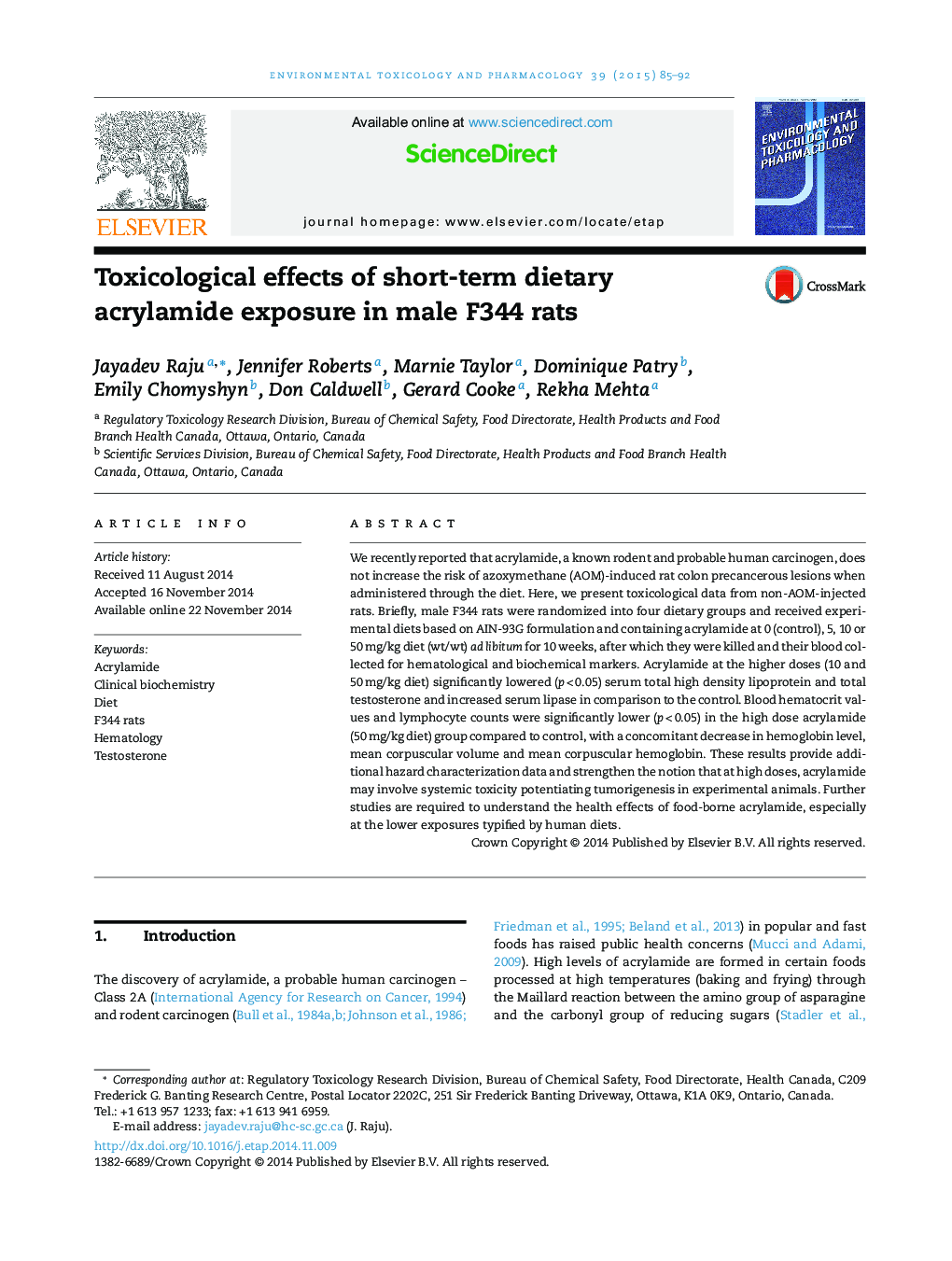| Article ID | Journal | Published Year | Pages | File Type |
|---|---|---|---|---|
| 2583269 | Environmental Toxicology and Pharmacology | 2015 | 8 Pages |
•Our study emphasized on the effect of acrylamide when exposed through the diet.•At high doses acrylamide lowered serum total HDL and total testosterone.•Acrylamide increased serum lipase.•Hematologically, acrylamide lowered lymphocyte levels.•Our data provides hazard characterization of dietary acrylamide relevant for risk assessments by food regulatory authorities.
We recently reported that acrylamide, a known rodent and probable human carcinogen, does not increase the risk of azoxymethane (AOM)-induced rat colon precancerous lesions when administered through the diet. Here, we present toxicological data from non-AOM-injected rats. Briefly, male F344 rats were randomized into four dietary groups and received experimental diets based on AIN-93G formulation and containing acrylamide at 0 (control), 5, 10 or 50 mg/kg diet (wt/wt) ad libitum for 10 weeks, after which they were killed and their blood collected for hematological and biochemical markers. Acrylamide at the higher doses (10 and 50 mg/kg diet) significantly lowered (p < 0.05) serum total high density lipoprotein and total testosterone and increased serum lipase in comparison to the control. Blood hematocrit values and lymphocyte counts were significantly lower (p < 0.05) in the high dose acrylamide (50 mg/kg diet) group compared to control, with a concomitant decrease in hemoglobin level, mean corpuscular volume and mean corpuscular hemoglobin. These results provide additional hazard characterization data and strengthen the notion that at high doses, acrylamide may involve systemic toxicity potentiating tumorigenesis in experimental animals. Further studies are required to understand the health effects of food-borne acrylamide, especially at the lower exposures typified by human diets.
